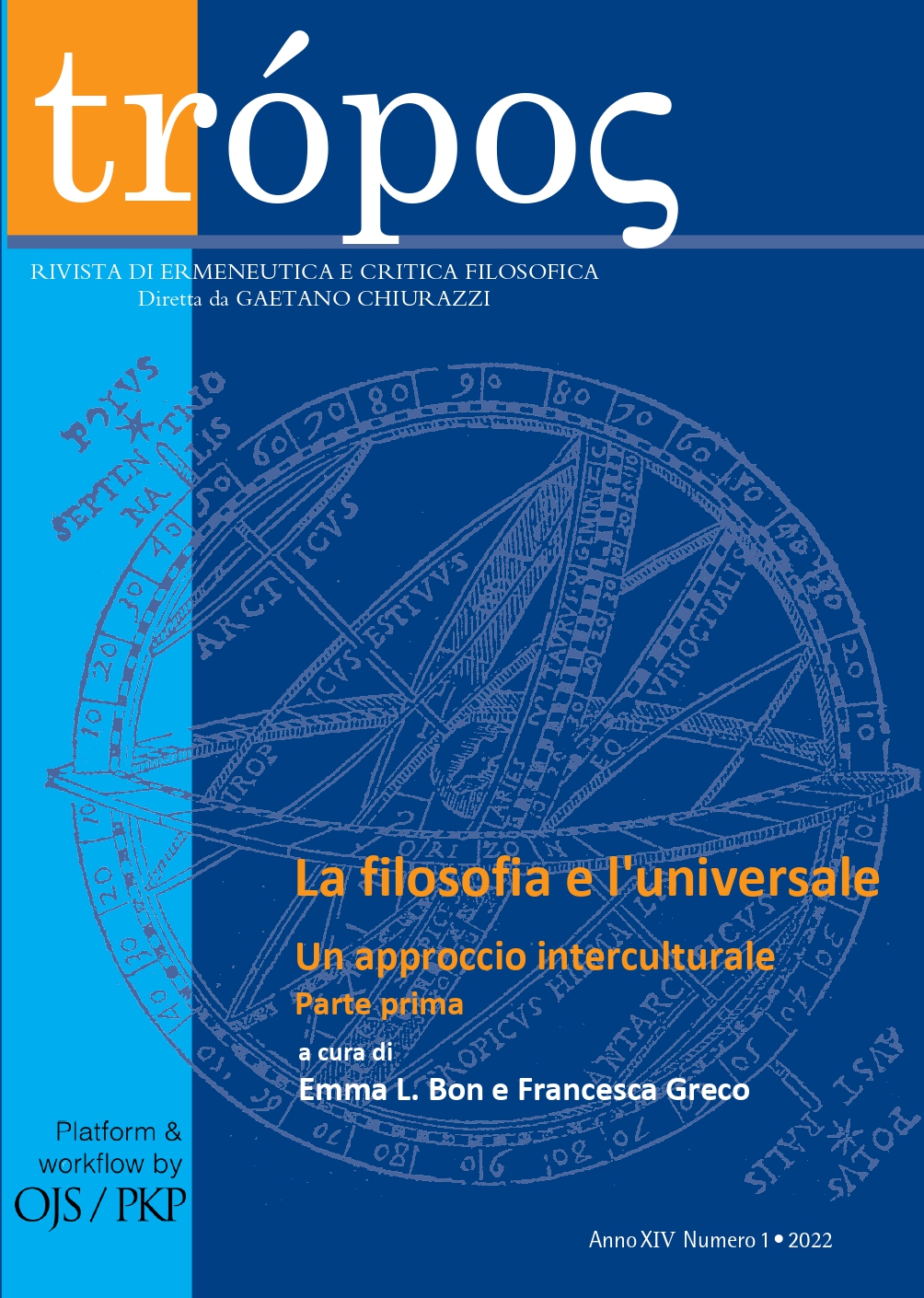Dallo "spirito oggettivo" all'ermeneutica
Alcune riflessioni sul concetto di “universale” a partire da Hegel e Nietzsche
DOI:
https://doi.org/10.13135/2036-542X/8154Parole chiave:
Universal, Science, Truth, Particular, HermeneuticsAbstract
This paper aims to analyse the philosophical problem of the “universal” from a hermeneutical and intercultural perspective. The first paragraph of the essay provides a historical-philosophical reconstruction of the concept of the “universal” between the ancient and modern world. The second paragraph focuses on the notion of the “universal” in Hegel. The thesis I argue is that Hegel’s notion of “objective spirit” is intrinsically connected to an interpretive dimension. Consequently, there is not a contradiction, but rather a complementarity, between absoluteness and relativity, universality and singularity. The “universal” in Hegel does not correspond solely to the “objective spirit”, as it encompasses elements of historical particularity that cannot be fully conceptualized. This thesis has allowed me to question the simplistic interpretation of Hegel’s relationship with the Eastern world and, at the same time, to reflect on Hegel’s conception of language. The third paragraph is focused on Nietzsche’s radical critique of the “universal,” with particular reference to his conception of “gay science.”



